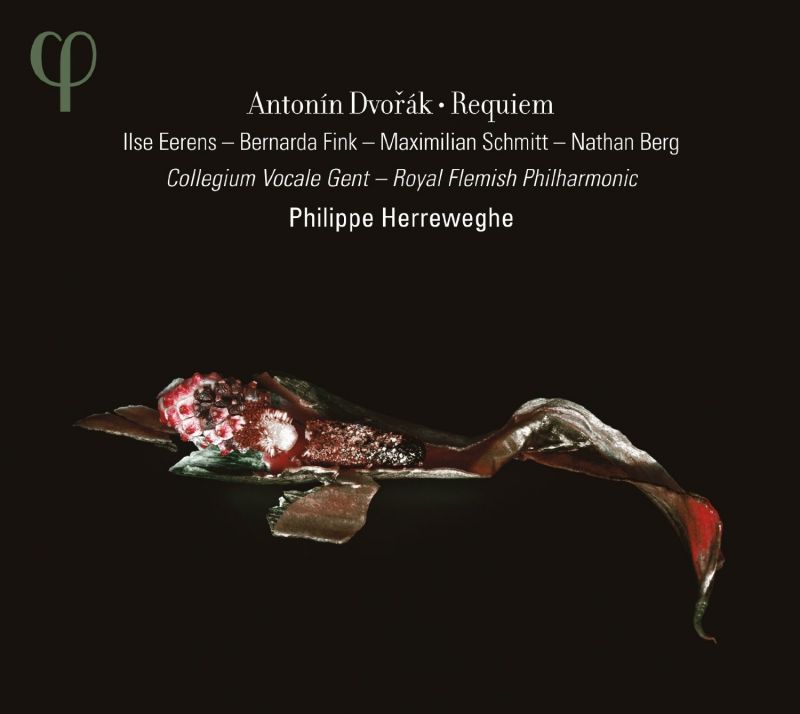DVOŘÁK Requiem
View record and artist detailsRecord and Artist Details
Composer or Director: Antonín Dvořák
Genre:
Vocal
Label: PHI
Magazine Review Date: 06/2015
Media Format: CD or Download
Media Runtime: 93
Mastering:
DDD
Catalogue Number: LPH016

Tracks:
| Composition | Artist Credit |
|---|---|
| Requiem Mass |
Antonín Dvořák, Composer
Antonín Dvořák, Composer Bernarda Fink, Alto Collegium Vocale Gent Ilse Eerens, Sorpano Maximillian Schmitt, Tenor Nathan Berg, Bass Philippe Herreweghe, Conductor Royal Flemish Philharmonic Orchestra |
Author: Malcolm Riley
Finding the English choral scene a welcome contrast to the destructive criticism he was experiencing in central Europe, Dvořák grasped Birmingham’s 1890 oratorio commission (The Dream of Gerontius having been briefly considered), producing a monumentally opulent Requiem. Dvořák was no stranger to mourning (he and his wife buried three of their nine offspring), and death is omni-present, identified by a short, chromatic motif which permeates the music’s sinews.
Herreweghe evokes the full range of this multi-layered piece. His strings and harp really shimmer at the start of the Offertorium and he achieves a chilling intensity at the opening of the ‘Tuba mirum’, with the trumpets’ and tam-tam’s eerie premonitions of Mahler. In the ‘Pie Jesu’ the horns and woodwind glow warmly before the soprano, alto and tenor soloists take over and sag in pitch a fraction. Generally, though, the solo quartet is well balanced.
Discover the world's largest classical music catalogue with Presto Music.

Gramophone Digital Club
- Digital Edition
- Digital Archive
- Reviews Database
- Full website access
From £8.75 / month
Subscribe
Gramophone Full Club
- Print Edition
- Digital Edition
- Digital Archive
- Reviews Database
- Full website access
From £11.00 / month
Subscribe
If you are a library, university or other organisation that would be interested in an institutional subscription to Gramophone please click here for further information.




